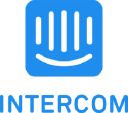How Three Fresh Out Of University Founders Created A 250K/Month Media SaaS
Hello! Who are you and what business did you start?
Hey, my name is Niklas Dorn, CEO, and co-founder of Filestage. We started the company in 2015 fully bootstrapped. Today we are the leading content review and approval software.
But let me give you some more background on that: Every day, agencies and marketing teams create, share and collaborate on millions of files. But the feedback process is messy and complicated for everyone involved.
Our software enables teams to easily share, comment, and approve any digital content. You can collaborate on anything from videos, images, pdf, podcasts, or entire websites with Filestage.
Today over 600 customers and 50.000 users worldwide use Filestage to manage their content approval rounds. Companies such as Sixt, Sharp, Publicis Health, and BBraun use the software to have all their files, versions, and feedback in one central place and to make their entire approval...

Download the report and join our email newsletter packed with business ideas and money-making opportunities, backed by real-life case studies.

Download the report and join our email newsletter packed with business ideas and money-making opportunities, backed by real-life case studies.

Download the report and join our email newsletter packed with business ideas and money-making opportunities, backed by real-life case studies.

Download the report and join our email newsletter packed with business ideas and money-making opportunities, backed by real-life case studies.

Download the report and join our email newsletter packed with business ideas and money-making opportunities, backed by real-life case studies.

Download the report and join our email newsletter packed with business ideas and money-making opportunities, backed by real-life case studies.

Download the report and join our email newsletter packed with business ideas and money-making opportunities, backed by real-life case studies.

Download the report and join our email newsletter packed with business ideas and money-making opportunities, backed by real-life case studies.



























